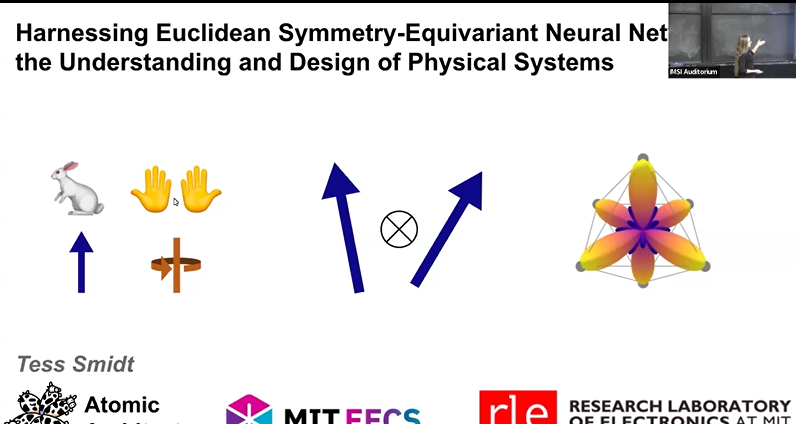Harnessing The Properties of Equivariant Neural Networks To Understand And Design Atomic Systems
Presenter
March 29, 2024
Event: 41725
Abstract
Physical systems at all scales (from atoms to the cosmos) are naturally represented by tensor fields, i.e. tensor features at specific coordinates. This poses a challenge for machine learning due to the sensitivity of coordinates and features to the symmetries of the space the physical system inhabits (e.g. 3D rotations, translations, and inversions in the case of 3D Euclidean space).Symmetry-equivariant Neural Networks (ENNs) are specifically designed to address this issue. They faithfully capture the symmetries of physical systems and operate on the scalar, vector, and tensor fields that characterize these systems. ENNs avoid brute-force data augmentation that traditional neural networks require to understand these transformations and are extremely data-efficient, they make more accurate predictions and need less data to do so.In this talk, I will give an overview of recent advances in ENNs and their application to physical systems, describe challenges in training and scaling these methods, and highlight unexplored opportunities in ENN techniques including applying these methods more broadly. I will focus on ENNs for 3D Euclidean Symmetry, E(3)NNs, and their application to atomistic systems to motivate this discussion.E(3)NNs have been successfully used to accelerate and scale ab initio calculations of atomistic systems and are emerging as effective generative models of molecules, crystals, and proteins. These results are promising — yet there is still much work to do to achieve the generalizability necessary for E(3)NNs to be a robust tool in chemical and materials discovery workflows. Furthermore, this is far from an exhaustive list of potential applications of ENNs, e.g. domains such as fluid dynamics and astrophysics are under-explored.
